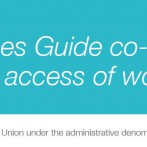The goal of the project is to contribute to the enhancement of women participation to economic decision making positions in 6 different EU countries and at the European level. In this view the project has set out to attain the following specific activities: to contribute to knowledge development regarding the problems and obstacles faced by women concerning their participation to economic decision-making; to raise awareness among important stakeholders on the situation of women participation to economic decision making; to contribute to the advancement of policies and legislation at national and EU level promoting women’s empowerment and participation to economic decision-making.
Detailed description of the project:
The main activities of the project are: undertaking research activities at the national level in order to analyse the state of the art of women participation and access to decision-making positions in classic business enterprises and social enterprises in 6 different European countries (e.g. in Italy, Finland, Belgium, France, Romania and the Czech Republic); organizing participatory workshops in all countries participating to the project with representatives of social enterprises and representatives of classic business enterprises that have as chief aims to improve the knowledge and understanding of the stakeholders involved regarding the obstacles faced by women when accessing decision making positions and best practices, and contribute to the development of sound policies and legislation initiatives; writing a European comparative study bringing together elements of analysis from the different national studies; producing a European framework for enhancing women participation to economic decision making that will put forward concrete policy and legislative recommendations based on the research findings and the results of the national workshops; organizing two awareness raising European seminars on the topic of gender balance in economic decision making positions, and a final dissemination conference aiming to disseminate the project outputs as widely as possible and bring to the attention of decision makers the importance of the issue; implementing a wide dissemination and communication strategy in order to communicate the project results as widely as possible and to reach all relevant stakeholders that could be involved in achieving the change envisaged by the project.
The expected project results are: improved knowledge among key stakeholders on the access of women to decision – making positions in the sector of classical and social enterprises in the six countries; increased awareness about the importance of creating structural conditions for achieving equal opportunities for men and women in economic decision making; concrete policy recommendations formulated by project partners through a collective process of analysis and distilling the findings of the national study and the experience of representatives of classic and social enterprises; a change in the employment policies and practices in the 6 countries participating to the project and in other EU countries.
The provider: European Commission, Directorate-General Justice, Directorate A: Civil justice, Unit A.4: Programme management
For more information see genderpowermap.eu
Publikace vydané v rámci projektu (celkem 5, zobrazeno 1 - 5)
Ženy mají v rozhodovacích pozicích v České republice ve srovnání zemí Evropské unie (dále EU) velmi podprůměrné zastoupení. Mezi zákonodárci a zákonodárkyněmi je pouze 26 procent žen, na úrovni vyšších úředníků/úřednic a manažerů/manažerek jsou jich pouhá procenta. Tento podíl se v průběhu času příliš nemění. Infrastruktura v České republice v oblasti genderové rovnosti je téměř výhradně omezena na centrální úroveň.
Ženy mají v rozhodovacích pozicích v České republice ve srovnání zemí Evropské unie (dále EU) velmi podprůměrné zastoupení. Mezi zákonodárci a zákonodárkyněmi je pouze 26 procent žen, na úrovni vyšších úředníků/úřednic a manažerů/manažerek jsou jich pouhá procenta. Tento podíl se v průběhu času příliš nemění. Infrastruktura v České republice v oblasti genderové rovnosti je téměř výhradně omezena na centrální úroveň.






Newsletter
Facebook
Twitter